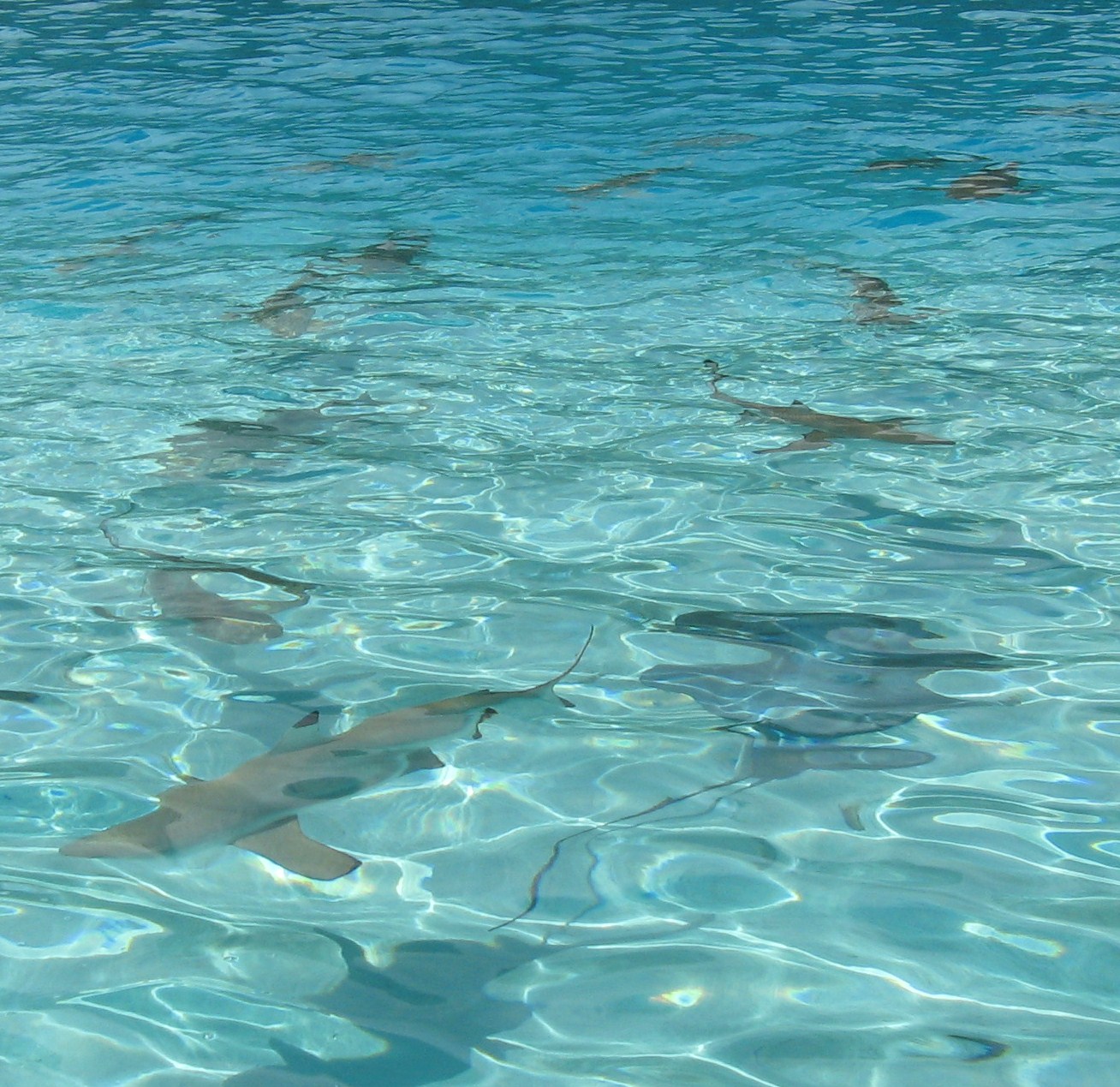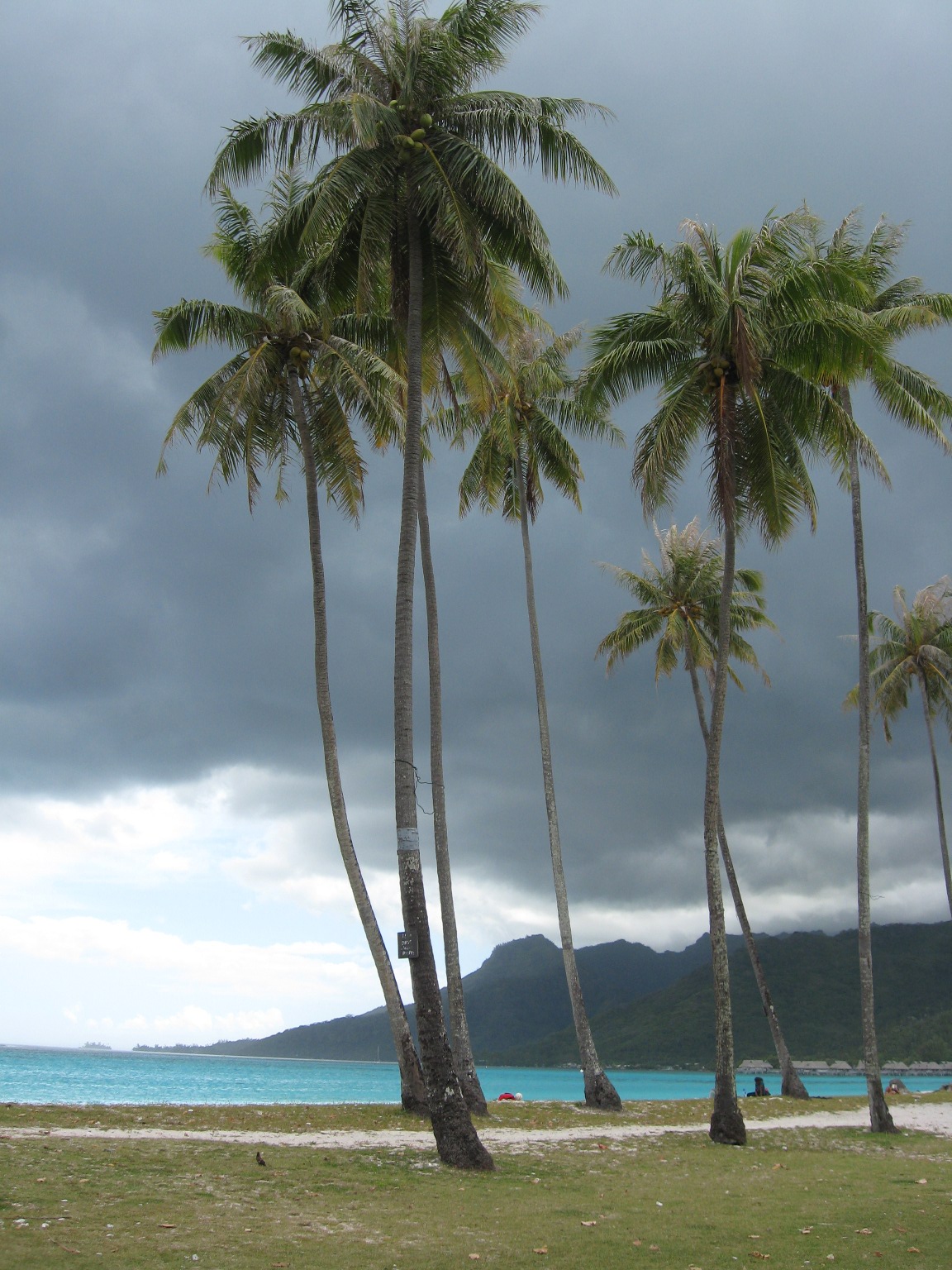 Each year Peace Boat travels the world on peace voyages. Participants on a recent voyage stopped in Tahiti and nearby Moorea Island for an Eco Tour, swimming with sting rays and black tip reef sharks, and also learning about dolphins and other marine life in the area.
Each year Peace Boat travels the world on peace voyages. Participants on a recent voyage stopped in Tahiti and nearby Moorea Island for an Eco Tour, swimming with sting rays and black tip reef sharks, and also learning about dolphins and other marine life in the area.
French Polynesia includes 118 islands and atolls; Tahiti by far the most populated. Less populated Moorea Island is home to the University of California Berkeley Gump Research Station where Peace Boat participants dropped by to learn about marine biology.
 “Tahiti is a relatively young island,” explained Frank Murphy, associate director of the research station. “It is only partially surrounded by coral. Moorea is older and completely surrounded by coral.”
“Tahiti is a relatively young island,” explained Frank Murphy, associate director of the research station. “It is only partially surrounded by coral. Moorea is older and completely surrounded by coral.”
The island has receded over time, so now a lagoon surrounds it, protected by the coral reef. This lagoon provides an ideal spot for sting rays and black tip reef sharks to swim and for snorkelers to observe them.
“Coral reefs provide a rich habitat for marine life around the islands. As a reef develops, it becomes a geologic feature, made of calcium carbonate from the skeletons of dead coral and other sea creatures such as crabs and sea urchins,” Murphy explained.
“Live coral continues to grow on top of the reef. Coral is an animal, and it only grows in the tropics. It has a skeleton on the inside, but the outside is very soft,” he continues.
“Although coral is not a plant, it needs to have light, because it has a symbiotic relationship with algae, and the algae need light. Algae are what give coral its brilliant colors, but sometimes if the coral is under stress, it ejects the algae from its tissue. When the algae are ejected, the tissue becomes transparent, and all that can be seen is the white skeleton.”
This is known as coral bleaching. Bleaching can result when the water becomes warmer, causing stress to the coral. Sometimes the warm water from El Niño causes coral bleaching. Scientists are concerned about how climate change will affect the world’s coral reefs.
After learning about marine biology and environmental issues related to coral conservation, participants enjoyed swimming and snorkeling at one of Moorea’s beautiful beaches and later a picnic lunch at a fare pote’e, or traditional Polynesian house, outside the University of California Berkeley Gump Research Station.
If you are interested in joining one of the Peace Boat voyages, finding out more about eco-tourism or volunteering on one of the disaster relief trips, please visit www.peaceboat.org
IN FOCUS PANGEA SEED
Pangea Seed is a grassroots organization based in Tokyo, dedicated to raising international awareness and educating people to the plight of sharks and the destruction of their habitat. Through volunteer activism, research and various mediums such as art, music, film and photography, Pangea Seed tries to create an open dialogue to develop an understanding of the need to preserve and protect sharks and their ocean habitat.
The word “pangea” is derived from ancient Greek meaning the “entire earth.” Sharks have balanced and controlled our oceans for centuries, but for how much longer?
The organization aims to connect individuals from around the world, share ideas and develop a better global understanding of our connection with sharks and the oceans.
The group believes no matter where you are in the world, your lifestyle and consumption habits positively or negatively affect every animal (including humans), plant and ecosystem on the planet and our environment. Simply, we are all connected.
For more information about Pangea Seed and to find out how you can get involved or support their shark conservation programs and activities, visit http://pangeaseed.com




